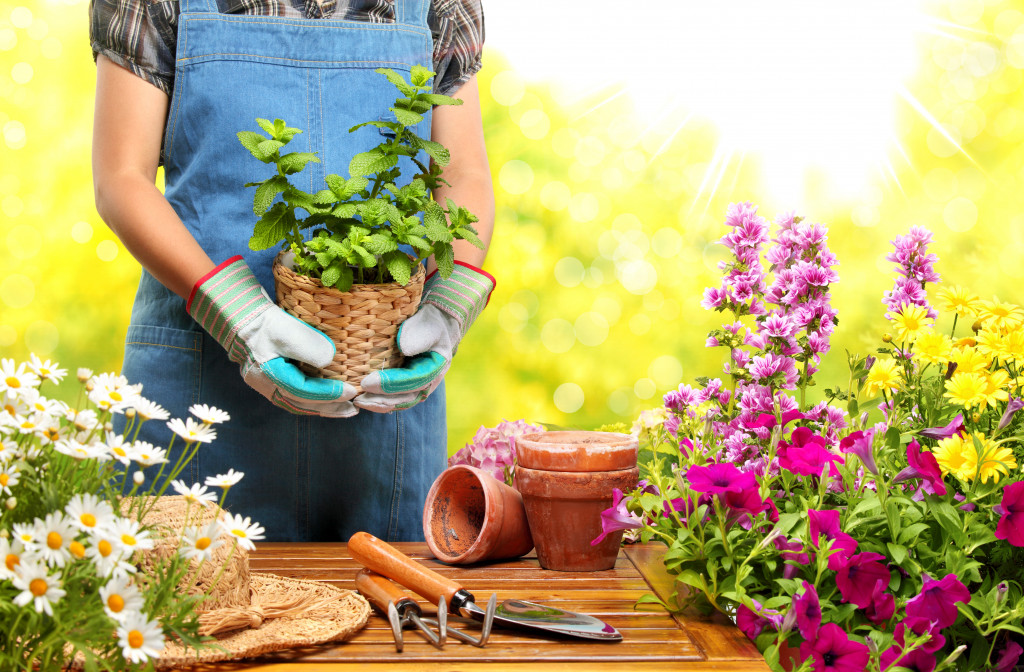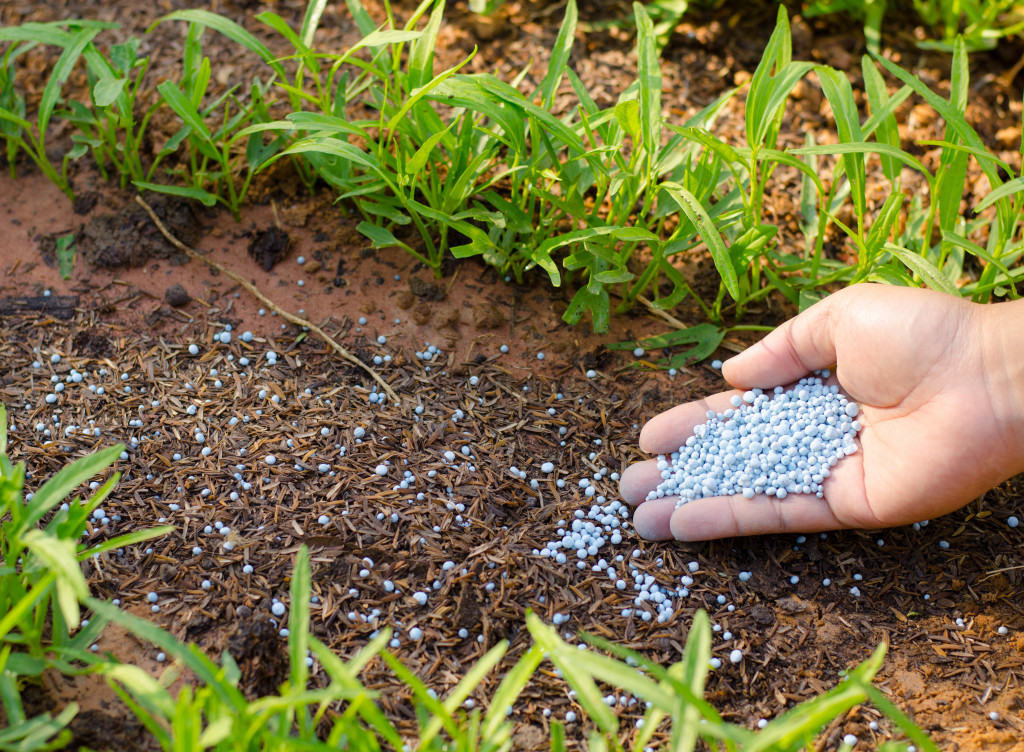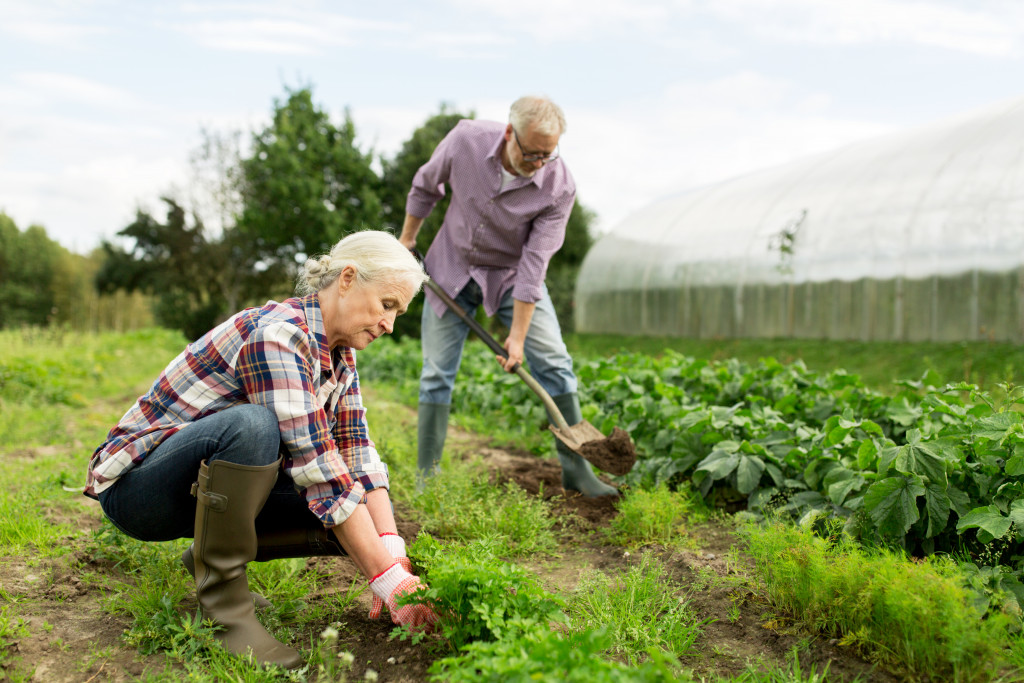- Equip with essential tools like spades, soil kits, raised garden beds, and durable gloves for efficient gardening.
- Choose beginner-friendly plants such as tomatoes, lettuce, herbs, and zucchinis to kickstart your green thumb journey.
- Utilize composting and organic materials for soil preparation to boost fertility and promote plant growth.
- Use watering and irrigation techniques like drip systems to ensure proper plant hydration.
- Use organic fertilizers and eco-friendly pest control methods to maintain plant health and prevent damage.
Gardening offers individuals a sense of tranquility and a deep connection with nature. Not only does it provide a serene environment, but it also yields the satisfaction of harvesting fresh produce right at your doorstep. Delving into gardening, one discovers a source of joy and fulfillment.
Tending to plants and witnessing their growth instills a sense of serenity and harmony with nature. Through gardening, individuals can escape the hustle and bustle of daily life and find solace in the beauty of their own green space.
Moreover, cultivating and nurturing plants allows one to experience the joy of reaping the rewards of their efforts by enjoying the freshest and most flavorful produce. Developing a green thumb is not merely a hobby but a meaningful pursuit with numerous benefits.
Engaging in gardening promotes physical and mental well-being, providing an opportunity to engage in gentle exercise and reducing stress levels. Additionally, it fosters a deep connection with the natural world, heightening one’s appreciation for the environment and the intricate processes of plant life.
By developing a green thumb, individuals contribute to a sustainable lifestyle and better understand the importance of nurturing and preserving the planet. This blog post will look at the top tips for starting a garden and how to sustain it for a greener and healthier future.
Essential Tools for Gardening
Before planting, you must ensure you have the right tools. Appropriate tools facilitate the process and allow for greater precision and efficiency. Some essential tools include:
Hand Tools
Hand tools such as a spade, shovel, pruner, and rake are necessary for any gardening task. They help you dig holes, prune overgrowth, and manage debris while keeping your garden bed clean and tidy. Ensure that these tools are of good quality and comfortable to use, as they will be your primary source of support throughout the gardening process.
Soil Testing Kits
Testing your soil’s pH level and nutrient composition is critical to determine fertile soil and what amendments are needed. A soil testing kit is an affordable and easy-to-use tool to help you understand your soil’s needs and develop a planting plan.
Garden Bed
A healthy garden bed starts with quality soil and good drainage. Seek a raised garden bed to provide proper drainage, prevent soil compaction, and offer a range of additional benefits. By elevating the planting area, raised garden beds allow for better control over soil quality, temperature, and weed management. They also make gardening more accessible, reducing the strain on your back and knees.
Garden Gloves
Gardening gloves protect your hands from dirt, thorns, and other hazards. When purchasing garden gloves, opt for a durable, waterproof pair for maximum protection. Consider choosing gloves with adjustable straps, ensuring a secure and comfortable fit.

Selecting Your First Plants
When embarking on your journey of choosing your first plants, it’s crucial to carefully consider and select varieties that are not only low-maintenance and easy to grow but also ideally suited for beginners. The following are some great plant options for beginners:
Annuals vs. Perennials
Annuals refer to plants that grow for a single season and then die, while perennials live for multiple years. These plants are often easier to develop and maintain, while perennials require more attention and care but offer longevity and seasonal blooms.
Easy-to-Grow Varieties
Some of the easiest plants to grow for beginners are tomatoes, lettuce, cucumbers, zucchini, and beans. These plants provide quick yields and require minimal maintenance. They are versatile and can be grown in various conditions, including containers or raised beds.
Herbs for Beginners
Herbs like basil, chives, mint, and parsley are resilient and easy to grow on a windowsill or balcony garden. They’re also ideal for cooking and adding flavor to your meals. Some herbs, such as mint and chives, are known to be invasive and spread quickly, so it’s best to grow them in a container to prevent them from overtaking your entire garden.
Nurturing Your Garden
Now that you’ve selected your plants, nurturing them and keeping your garden bed healthy and thriving is essential. With dedication and attention to detail, you can create a vibrant and beautiful garden that will bring you joy and satisfaction for years. Here are some tips to help you maintain your garden:
Soil Preparation and Composting
A healthy garden bed starts with quality soil. Preparing your soil with compost and other organic materials can increase fertility and promote plant growth. Composting also reduces waste and helps the environment by using organic waste material.
Watering and Irrigation Techniques
Watering your plants at the right time with the right amount of water is critical to their growth. A drip system or soaked hose is a more efficient and water-friendly way of watering your plants than a sprinkler.
Fertilizing and Pest Control
Fertilizing your plants at the right time with the proper nutrients is essential to their growth. Organic fertilizers like bone meal and compost tea are effective and eco-friendly. Pest control techniques like handpicking and companion planting can prevent damage to your plants without using harmful chemicals.

Starting a garden and developing a green thumb can be an enjoyable and rewarding experience. Having the right tools, selecting the right plants, and nurturing your garden are critical steps to ensure your garden’s success.

